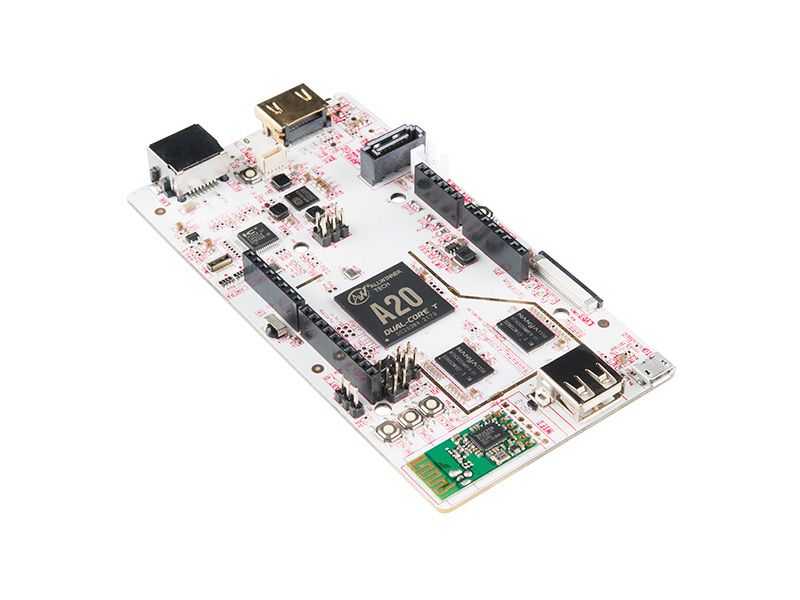
pcDuino3 by LinkSprite
The pcDuino3 is a high performance, cost effective mini PC platform that runs full-featured operating systems such as Ubuntu and Android. In addition to running Linux and Android, the pcDuino3 has support for programming languages such as C, C++, Java, Python, Arduino, and more. You can even use your favorite Arduino shields for added hardware capability. The pcDuino3 has an impressive set of features including an IR receiver, SATA host, USB-OTG, LVDS LCD interface, MIPI camera interface, 3.5mm audio output, battery header, WiFi, Ethernet, and more. If you’re looking for the ‘kitchen sink’ of development boards, look no further.
The pcDuino acts much like a computer, needing only a 5v (2A) power supply, keyboard, mouse and display to get running. You can even use the USB-OTG to connect remotely. Connect it to your network with either the WiFi module or Ethernet jack so you can log data, run a web server, or control devices remotely. The more powerful pcDuino uses a dual core A20 processor which makes it one of the most powerful single board computers on the market.
An API has been developed for the pcDuino3 that allows the user to access all of the functions that you would expect using simple Arduino-style language. Additionally Ubuntu and Android OS Images can be found in the Documents section below.
Purchase
Contribute
Have some info to add for this board? Edit the source for this page here.
Adafruit Blinka Installation
We use a special library called adafruit_blinka (named after Blinka, the CircuitPython mascot) to provide the layer that translates the CircuitPython hardware API to whatever library the Linux board provides.
For example, on Raspberry Pi we use the python RPi.GPIO library. For any I2C interfacing we'll use ioctl messages to the /dev/i2c device. For SPI we'll use the spidev python library, etc. These details don't matter so much because they all happen underneath the adafruit_blinka layer.
